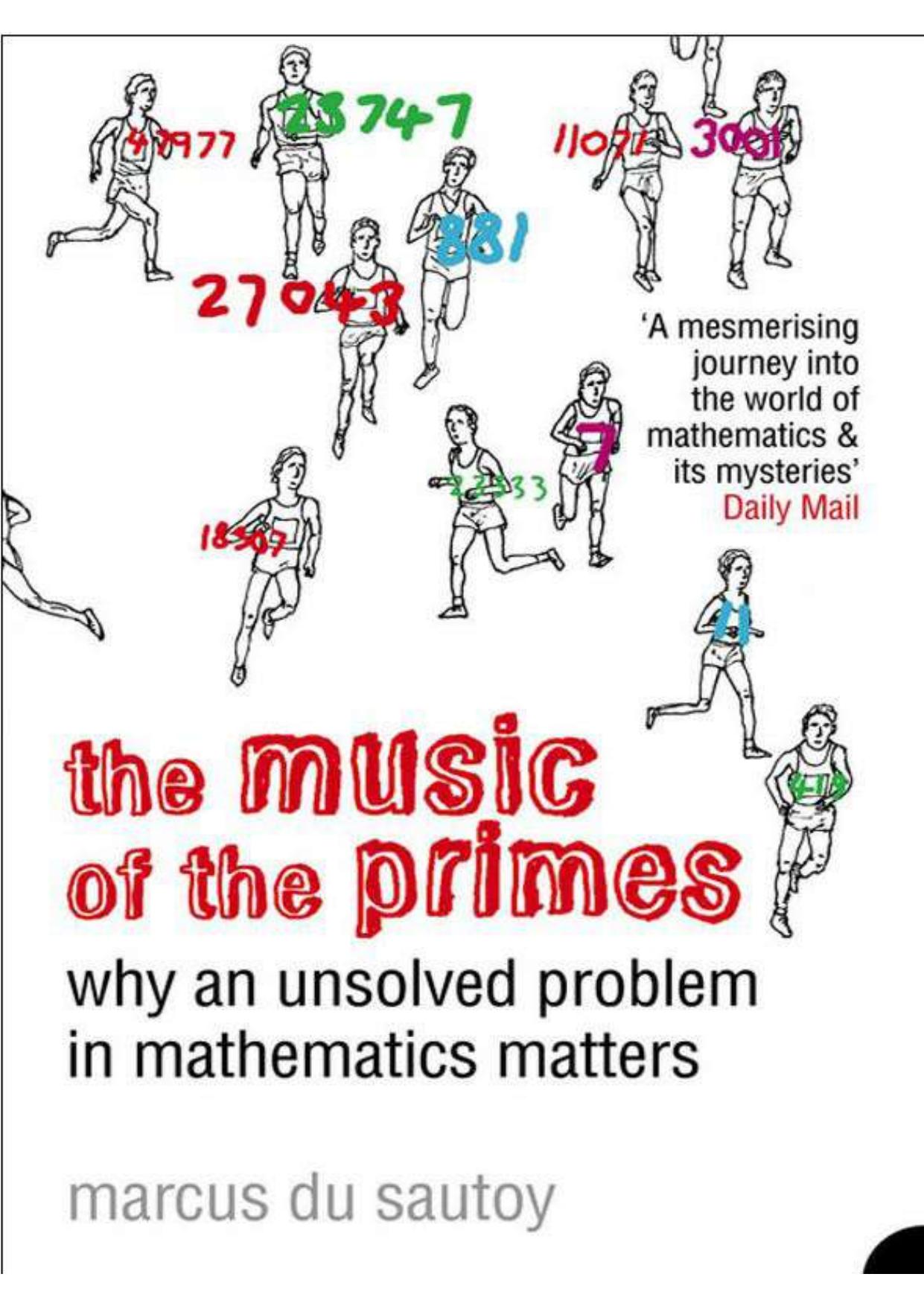The Music of the Primes by Marcus du Sautoy

Author:Marcus du Sautoy [du Sautoy, Marcus]
Language: eng
Format: epub, azw3, pdf
ISBN: 9780007375875
Publisher: HarperCollins Publishers
Published: 0101-01-01T00:00:00+00:00
CHAPTER EIGHT
Machines of the Mind
I propose to consider
the question, ‘Can machines think?’ Alan Turing, Computing Machinery and Intelligence
Alan Turing’s name will always be associated with the cracking of Germany’s wartime code, Enigma. From the comfort of the country house of Bletchley Park, halfway between Oxford and Cambridge, Churchill’s code-breakers created a machine which could decode the messages sent each day by German intelligence. The story of how Turing’s unique combination of mathematical logic and determination helped save many lives from the threat of the German U-boats is the stuff of novels, plays and movies. Yet the inspiration for the creation of his ‘bombes’, the code-cracking machines, can be traced back to Turing’s mathematical days in Cambridge, when Hardy and Hilbert were still in the ascendancy.
Before the Second World War engulfed Europe, Turing was already planning machines that would blow two of Hilbert’s twenty-three problems out of the water. The first was a theoretical machine, existing only in the mind, which would demolish any hope that the secure basis of the foundations of the mathematical edifice could be checked. The second was very real, made of cogs and dripping with oil, and with this machine Turing intended to challenge another mathematical orthodoxy. He dreamt that this spinning contraption might have the power to disprove the eighth and Hilbert’s favourite of the twenty-three problems: the Riemann Hypothesis.
After years of his colleagues failing to prove the Riemann Hypothesis, Turing believed that perhaps it was time to investigate whether Riemann might have been wrong. Perhaps there actually was a zero off Riemann’s critical line, which would thus force some pattern onto the sequence of primes. Turing could see that machines would become the most powerful tools in a search for the zeros that might disprove Riemann’s conjecture. Thanks to Turing, mathematicians would now have the help of a new, mechanical partner in their investigation of Riemann’s Hypothesis. But it wasn’t just Turing’s physical machines that would have an impact on mathematicians’ exploration of the primes. His machines of the mind, originally created to attack Hilbert’s second problem, would lead in the late twentieth century to the most unexpected offshoot: a formula for generating all the primes.
Turing’s fascination with machines was stimulated by a book that he was given in 1922 when he was ten years old. Natural Wonders Every Child Should Know by Edwin Tenney Brewster was packed with nuggets which fired the young Turing’s imagination. Published in 1912, it explained that there were explanations for natural phenomenon, and it didn’t rely on feeding its young readers with passive observations. Given Turing’s later passion for artificial intelligence, Brewster’s description of living things is particularly enlightening:
For of course the body is a machine. It is a vastly complex machine, many, many times more complicated than any machine ever made with hands; but still after all a machine. It has been likened to a steam machine. But that was before we knew as much about the way it works as we know now. It really is a gas engine; like the engine of an automobile, a motor boat or a flying machine.
Download
The Music of the Primes by Marcus du Sautoy.azw3
The Music of the Primes by Marcus du Sautoy.pdf
This site does not store any files on its server. We only index and link to content provided by other sites. Please contact the content providers to delete copyright contents if any and email us, we'll remove relevant links or contents immediately.
| Algebra | Calculus |
| Combinatorics | Discrete Mathematics |
| Finite Mathematics | Fractals |
| Functional Analysis | Group Theory |
| Logic | Number Theory |
| Set Theory |
Modelling of Convective Heat and Mass Transfer in Rotating Flows by Igor V. Shevchuk(6432)
Weapons of Math Destruction by Cathy O'Neil(6264)
Factfulness: Ten Reasons We're Wrong About the World – and Why Things Are Better Than You Think by Hans Rosling(4731)
A Mind For Numbers: How to Excel at Math and Science (Even If You Flunked Algebra) by Barbara Oakley(3294)
Descartes' Error by Antonio Damasio(3270)
Factfulness_Ten Reasons We're Wrong About the World_and Why Things Are Better Than You Think by Hans Rosling(3230)
TCP IP by Todd Lammle(3180)
Fooled by Randomness: The Hidden Role of Chance in Life and in the Markets by Nassim Nicholas Taleb(3105)
Applied Predictive Modeling by Max Kuhn & Kjell Johnson(3064)
The Tyranny of Metrics by Jerry Z. Muller(3061)
The Book of Numbers by Peter Bentley(2964)
The Great Unknown by Marcus du Sautoy(2689)
Once Upon an Algorithm by Martin Erwig(2641)
Easy Algebra Step-by-Step by Sandra Luna McCune(2628)
Lady Luck by Kristen Ashley(2576)
Police Exams Prep 2018-2019 by Kaplan Test Prep(2540)
Practical Guide To Principal Component Methods in R (Multivariate Analysis Book 2) by Alboukadel Kassambara(2538)
All Things Reconsidered by Bill Thompson III(2388)
Linear Time-Invariant Systems, Behaviors and Modules by Ulrich Oberst & Martin Scheicher & Ingrid Scheicher(2364)
